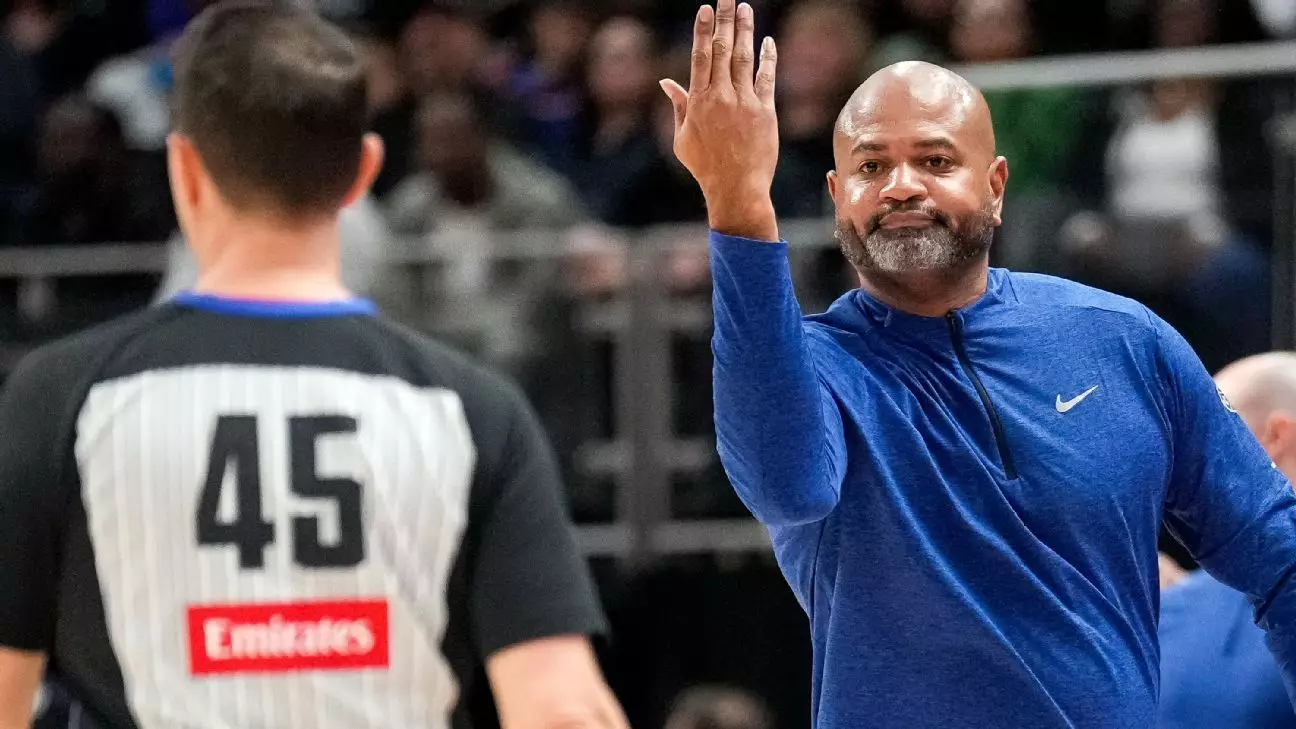The recent clash between the Detroit Pistons and the Oklahoma City Thunder showcased not only a close contest but also an incredibly contentious officiating performance. After a tight 113-107 defeat, Pistons coach J.B. Bickerstaff expressed his vehement frustration regarding the five technical fouls that were doled out during a single quarter, particularly highlighting a chaotic stretch where star player Cade Cunningham was ejected. This incident has raised significant concerns about the integrity and consistency of officiating in the league, a problem that seems to persist year after year.
Unraveling the Technicals
Bickerstaff’s intense criticism stemmed from what he described as “disrespectful” officiating. Players pushing back against calls—like Cunningham and Dennis Schroder—were issued technicals for arguing, which, while understandable in the heat of the moment, has been a common theme in games this season. The triggering situation, where Cunningham received two technicals in under a minute, points to the potential need for a more nuanced understanding of player interactions in these high-stakes moments. The question arises: Should players be penalized for passionate expressions of disagreement when the officiating appears problematically inconsistent?
Furthermore, the crew chief’s dismissal of a possible hostile act involving an elbow thrown toward a Pistons player, which Bickerstaff requested to be reviewed, raises eyebrows. How can a team compete effectively when the rules of engagement seem to arbitrarily change from one call to another? This inconsistency erodes the trust players and coaches place in referees and can significantly alter the outcome of games.
The Ripple Effect on Player Mentality
Officials wield considerable power; their decisions can dictate not only the flow of the game but also the emotional climate of the players involved. When players feel they are being treated unfairly, frustrations boil over, leading to technical fouls and further inhibiting their performance. For example, the immediate aftermath of Cunningham’s ejection didn’t just hurt the Pistons in terms of skill on the floor but also significantly impacted the morale of both the team and fans.
Coach Bickerstaff’s passionate plea for respect isn’t merely a coach’s concern; it’s about preserving the game’s integrity. As NBA officials increasingly rely on metrics and past evaluations to gauge their performance, it appears that subjective realities of games are often lost in the numbers. It’s evident that a balance needs to be struck—refereeing should ensure fairness while supporting the players’ emotional expressions within the confines of sportsmanship.
Looking Ahead: A Call for Change
As the Pistons reflect on this contentious game, the implications of this officiating debacle reverberate throughout the league. It’s not just about one team or one game; rather, it’s a systemic issue that can paint an entire season. Will the league take action to address the growing dissatisfaction among players and coaches regarding officiating? The narrative surrounding this loss could be a catalyst for change, igniting discussions on better referee communication and enhanced training to ensure that officials can keep pace with the game while respecting the players who electrify the sport.
In a league where every move counts, how can we trust the integrity of competition when such glaring officiating errors loom large? The time is ripe for the NBA to consider reforms that not only bolster officiating quality but also reclaim the spirit of the game for players and fans alike.


Leave a Reply